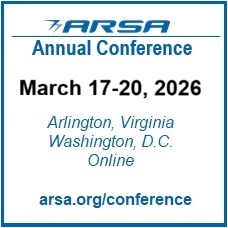ARSA Works: How We Stand
ARSA has a proven track record of standing up and zealously searching for the right answers—be that from the government or from industry. Unfortunately, it’s easy to misinterpret our engagement as opposition instead of what it really is: equal accountability for aviation safety.
A long time FAA aviation safety inspector recently shared the evolution of his opinion:
“It’s funny that I used to think that you just…took pleasure in slamming the FAA. That opinion changed. Now I know that you take pride in slamming the FAA, but only when [it] need[s] slamming or need[s] to be challenged, which of course is quite often. But as a result of your work the giant bureaucratic organization is forced to do the right thing, and this always yields support to repair stations as well as maintenance airmen. I applaud you and the staff of ARSA for the great work you do.”
Members recognize that the association will take a position on broad, complicated issues and hold fast for the good of all. ARSA’s work on the instructions for continued airworthiness (ICA) issue is an excellent example where the association is representing the entire industry, not any particular company—availability of essential continued airworthiness information is a regulatory backbone for aviation safety.
ARSA Works
The association’s persistence is on display in a letter to an aviation safety inspector clarifying the need for repair stations to provide part-specific training.
This isn’t the first time the association is addressing this specific issue; in 2013 the FAA provided assurance that ARSA was “…correct [that there] is no requirement for ‘Manufacturer Training’ on specific part number/dash number articles.” The agency also issued an internal memorandum.
Case closed.
Unfortunately, the plain language of the regulations, the letter and internal memorandum are apparently being disregarded possibly due to a December 2013 memorandum from John Duncan broadly declaring many perfectly good guidance documents void. The association reminds the inspector that the language of 14 Code of Federal Regulations (CFR) remains unchanged: the rules do not require part-specific training from manufacturers.
So once again the association has stepped up in an outspoken manner by requesting accountability in the sensible and consistent application of regulation. Whether or not guidance material covers a specific issue does not rule the situation, 14 CFR does. If the inspector believes our request is misdirected, we have asked for a reasoned and safety-oriented exchange. We will continue to champion reason instead of partiality in our actions.
We do not seek conflict; nor do we avoid it. We will act on behalf of aviation safety, with particular emphasis on the aviation maintenance industry, our member requirements, and the government’s obligations.
And on our good days, we’re all forced to do the right thing.
“…As a result of your work the giant bureaucratic organization is forced to do the right thing, and this always yields support to repair stations as well as maintenance airmen. I applaud you and the staff of ARSA for the great work you do.”








